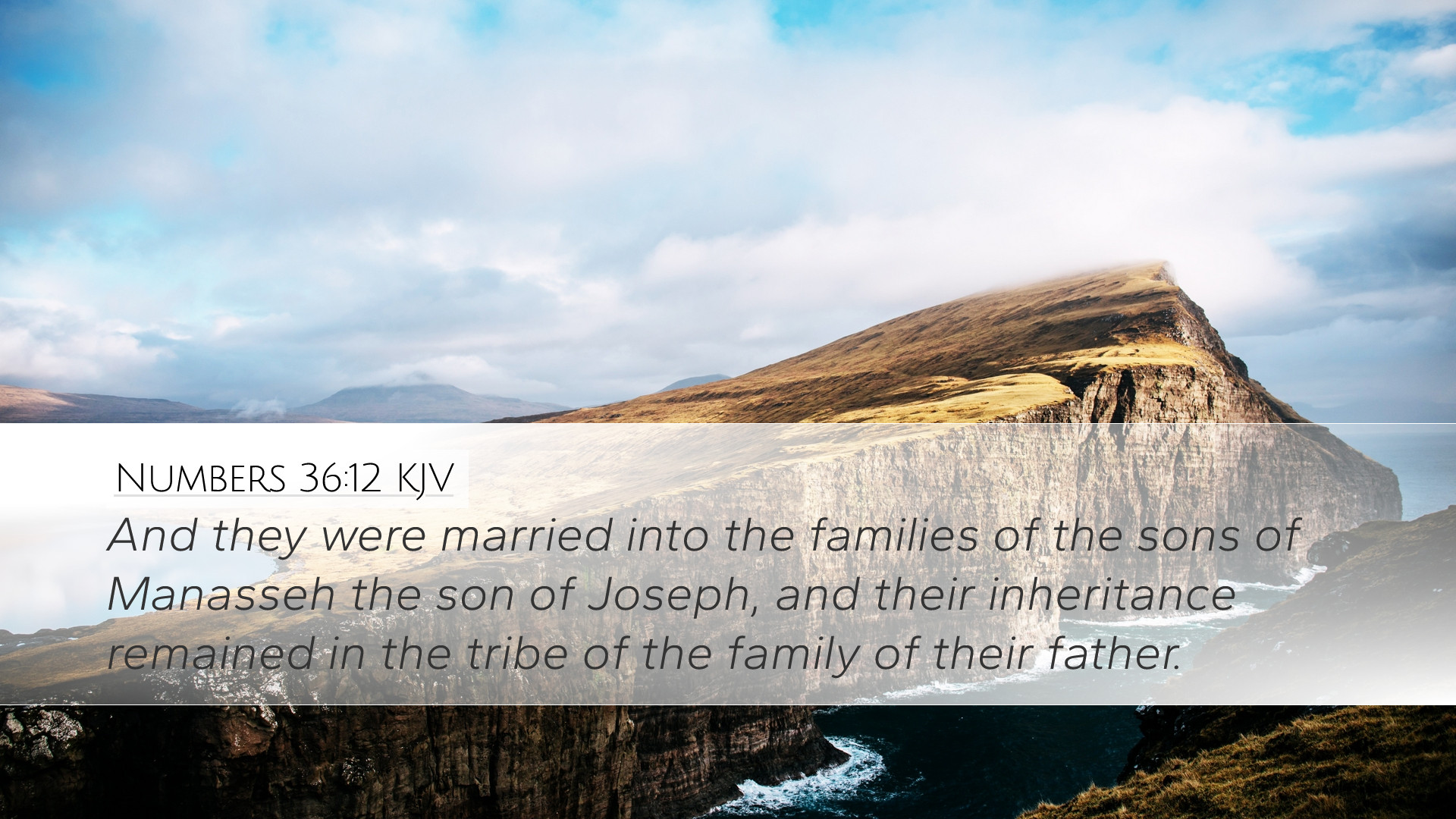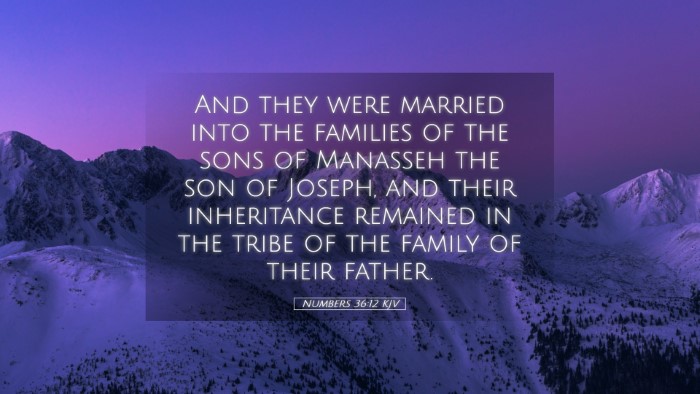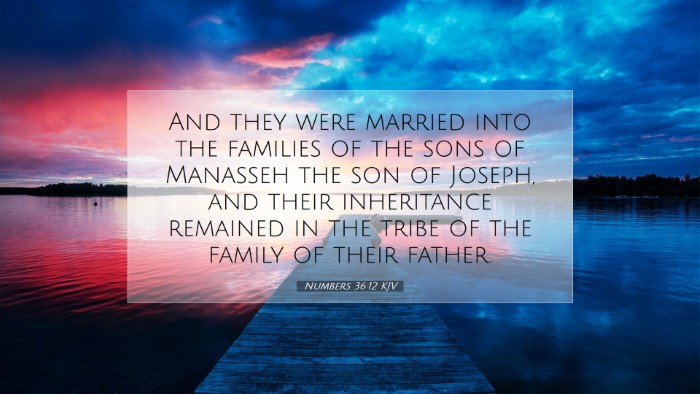Commentary on Numbers 36:12
Verse: Numbers 36:12
"And they were married into the families of the children of Manasseh, the son of Joseph, and their inheritance remained in the tribe of the family of their father."
Introduction
The verse in question, Numbers 36:12, provides critical insights into the laws governing inheritance and marriage among the Israelites. It serves as an essential reference for understanding the divine principles regarding family, land, and the collective identity of tribes within Israel. Various commentators, including Matthew Henry, Albert Barnes, and Adam Clarke, offer rich theological and practical insights into this passage.
Contextual Overview
Numbers 36 is primarily concerned with the issue of land inheritance as it pertains to the daughters of Zelophehad, who were given a unique opportunity to inherit their father's land due to the absence of male heirs. The concerns raised regarding their marrying outside their tribe reflect significant cultural and theological principles in Israelite society, particularly the preservation of tribal identity and territorial integrity.
The Importance of Tribal Inheritance
Matthew Henry’s Insight:
- Henry emphasizes that God’s laws regarding inheritance were designed to maintain tribe integrity and prevent the fragmentation of land. His commentary highlights that marrying within the tribe ensured that the property rights remained intact.
Albert Barnes’ Perspective:
- Barnes notes that the daughters' marriages into the families of Manasseh signifies a continuation of their familial lineage while adhering to God’s commandments regarding tribal purity. This was vital in maintaining the distinctiveness of their tribe's identity in the Promised Land.
Marriage and Family Identity
Adam Clarke’s Commentary:
- Clarke points out that this verse illustrates the merging of family lines through marriage while retaining a sense of familial belonging. The daughters of Zelophehad were not simply absorbed into outside families; instead, they retained their identity within the Manasseh tribe.
Theological Implications
The directives given in Numbers 36:12 extend beyond mere societal rules. They reflect profound theological implications about God’s covenant community.
Divine Sovereignty Over Inheritance
Both Henry and Barnes emphasize the divine orchestration in matters of inheritance. The idea portrays God as the ultimate authority in orchestrating the lot of each tribe and family. The inheritance structure was not arbitrary, but a direct command from God.
Collective National Identity
Clarke expands the discussion to emphasize the importance of collective identity among the tribes. The marriages preserved both familial ties and the national identity of Israel, which was paramount for God’s purpose for His people as they occupied the Promised Land.
Practical Applications
This passage is not merely historical; it has practical applications for modern believers, especially leaders, and scholars of Scripture.
Understanding God’s Order
Matthew Henry: He stresses the necessity of acknowledging God’s sovereignty in our personal and communal inheritances. Believers are reminded that their family legacies are part of a larger divine narrative.
The Value of Community
Albert Barnes: He encourages the church to recognize the importance of communal ties within the body of Christ. As the descendants of the spiritual Israel, Christians are to uphold the values of community and mutual accountability.
Covenantal Relationships
Adam Clarke: He points to the significance of covenantal relationships in Christianity, urging modern disciples to ensure that their relationships—through marriage or fellowship—reflect their commitment to God and His truth.
Conclusion
Numbers 36:12 encapsulates key themes regarding inheritance, community, and divine oversight. While rooted in ancient Israelite society, its theological implications extend into modern faith practices. The insights provided by Matthew Henry, Albert Barnes, and Adam Clarke collectively enrich our understanding of this significant scriptural passage, reminding us of the importance of abiding by God’s laws in our relationships and community dynamics.


